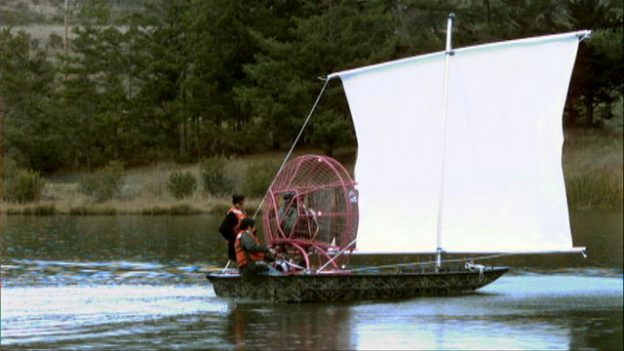President Trump continues on his shortsighted warpath of ever escalating tariffs on Chinese goods. “Tariffs will make our Country MUCH STRONGER, not weaker. Just sit back and watch!” he tweeted recently. Well, yes, I suppose if you jump off a bridge and break both your legs those bones will be stronger once healed, but I don’t think that’s what he had in mind. Tariffs are a self-imposed burden; the exporter of a good does not pay them – the importer does (i.e. the domestic business, employing domestic workers, selling to a domestic market). It is the economic equivalent of me insisting I pay an extra 25% to the grocery store because I’m so upset there is a trade imbalance between the grocer and myself. Trump is either being willfully dishonest (and to be fair, what politician isn’t – ‘if you like your plan you can keep your plan’), or, he is entirely ignorant of how tariffs actually work. If Importer ABC is buying widget A from a Chinese exporter for $1 and there is a new 25% tariff imposed, the cost goes from $1 to $1.25 – paid for entirely by the importer. The cost is either passed on to the American consumer or expenses in other areas are reduced (i.e. layoffs of American workers) in order to stay price competitive.
Perplexingly, Trump actually acknowledged the potential harm to some sectors (i.e. US farmers, whose sales of exported goods to China have dropped off due to in-kind retaliatory tariffs by China on the US) and rather than extinguishing the dumpster-fire he has created he has doubled down on an even more ludicrous plan. He is proposing that we take the proceeds from the tariffs and use it to offset declining agricultural sales by purchasing the unsold goods – and get this – donating it to foreign countries! So, it is bad for the US if China “dumps” low cost goods into our market, yet somehow it’s a-ok if the US in turn dumps totally free goods into other countries’ markets? Nah, that won’t totally disrupt their domestic agricultural market driving them to cross a border in order to find work… there is some country where that has happened before but the name escapes me right now. This Rube Goldberg scheme is tantamount to using a fan to blow the sail of a sailboat. Yes, it works, but it is incredibly inefficient; just remove the sail and turn the fan around. In other words, an actual free market in trade (not managed trade á la NAFTA or TPP) is maximally efficient and beneficial to all.
The only utility to be gained from this scheme is to encourage Trump-hating-leftists to closely examine the idiocy of this scheme. Perhaps once Trump is out of office they will recognize the lunacy of this scheme in future government polices. For example, all foreign aid works on this principle. Take money from some Americans and give it to others to buy their goods in order to give them to a third party for free. Or, take money from some Americans and give it to a third party with the stipulation they can only use it to buy goods from some other Americans.Carbon taxes, if imposed, would work the same way. Impose a tax (on Americans) then turn around and refund the just collected funds to other Americans to offset the fact they are paying more for energy.
Perhaps in the end that will be the silver lining of the Trump presidency; to awaken the American electorate to the fact that the idiotic schemes implemented by Trump are identical to every past presidential administration in their execution. These programs and schemes are counter-productive and inefficient on their face regardless of who sits in the Oval Office.






